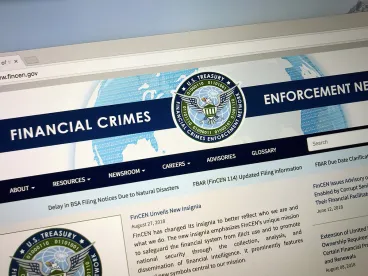On Jan. 1, 2024, the Corporate Transparency Act (the “CTA”) went into effect, requiring certain businesses organized or qualified to do business in the U.S. to report beneficial ownership information (“BOI”) unless exempt from the reporting requirements. In addition to penalties for failures of businesses and beneficial owners to report information required under the CTA, financial institutions could be exposed to sanctions by regulators and enforcement agencies under “know your customer” (“KYC”) and “customer due diligence” (“CDD”) regulations of the Financial Crimes Enforcement Network (“FinCEN”). The CTA allows for financial institutions to gain access to BOI if certain circumstances are met.
Before undertaking the analysis of whether a financial institution may access the BOI of a customer, couldn’t the bank or other financial institution providing financing simply require its customer to provide their own BOI as part of KYC and CDD requirements? The problem is that if a financial institution obtains a copy of its customer’s FinCEN filings from the customer and not from FinCEN directly, the institution would inherently be relying on the accuracy and completeness of the information provided by its customer.
It’s possible that the information provided by the customer to the financial institution is not the same as the BOI that the customer provided to FinCEN. The information provided to the financial institution could be incomplete, inaccurate, or worse, falsified. Therefore, financial institutions should strongly contemplate using “self-authenticating” BOI. If an entity that is considered a financial institution under the CTA requests a copy of such information from FinCEN directly, the copy provided by FinCEN is itself a copy of the filed report, and in that sense is “self-authenticating.”
Financial institutions should request access to BOI as permitted under the CTA as a matter of course to avoid the possible risks associated with inaccurate BOI information provided by their customers and the resulting potential violations of KYC and CDD regulations of FinCEN pursuant to the Bank Secrecy Act, the USA Patriot Act, and the Anti-Money Laundering Act of 2020.
On Friday, March 1, 2024, the United States District Court for the Northern District of Alabama, Northeastern Division, held that the CTA is unconstitutional, a law beyond the authority of Congress, and enjoined enforcement of the statute against the plaintiffs (the National Small Business Association and others). The opinion does not enjoin enforcement against others. We expect that the Department of Treasury will appeal the decision.




 />i
/>i
